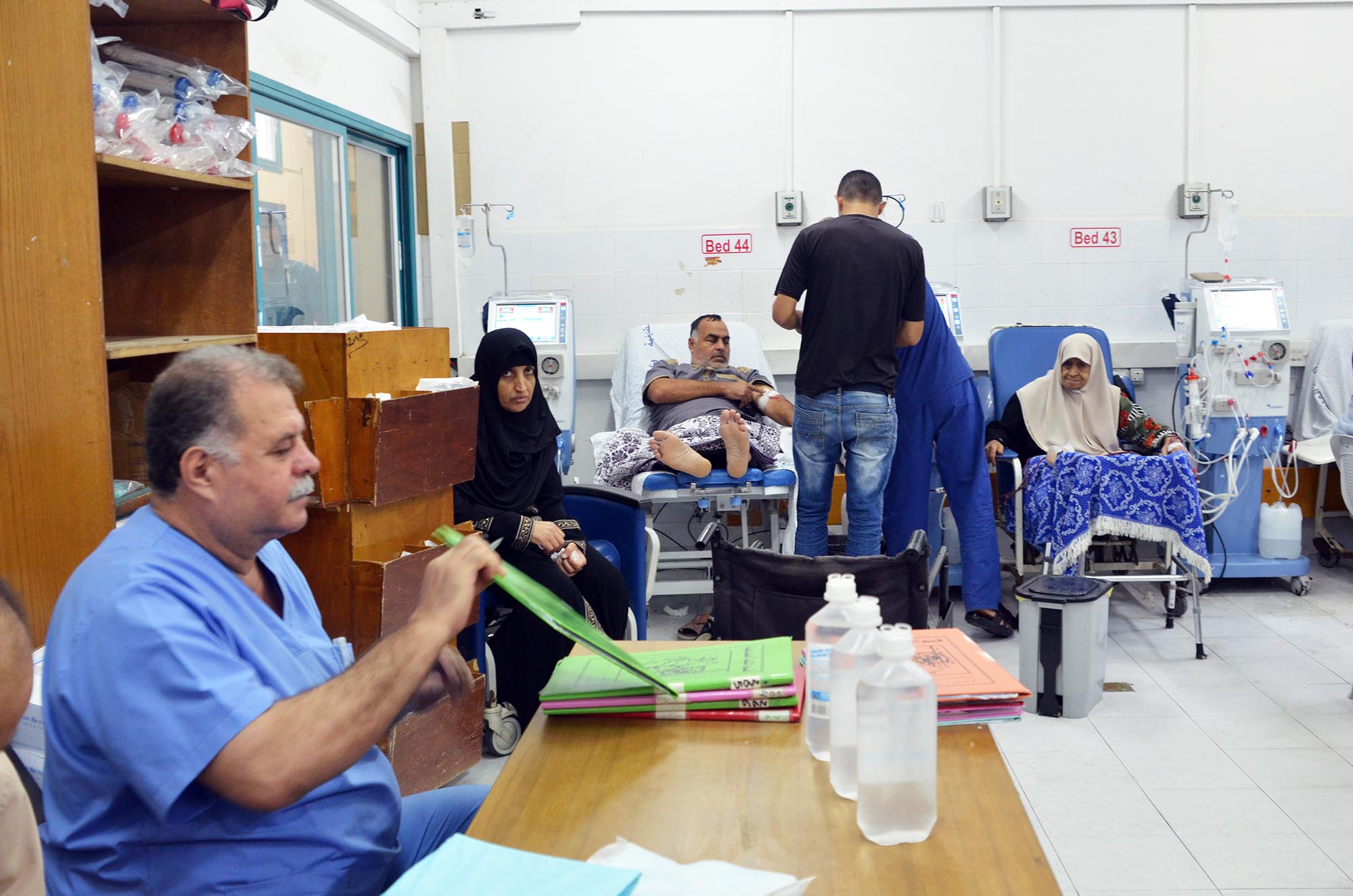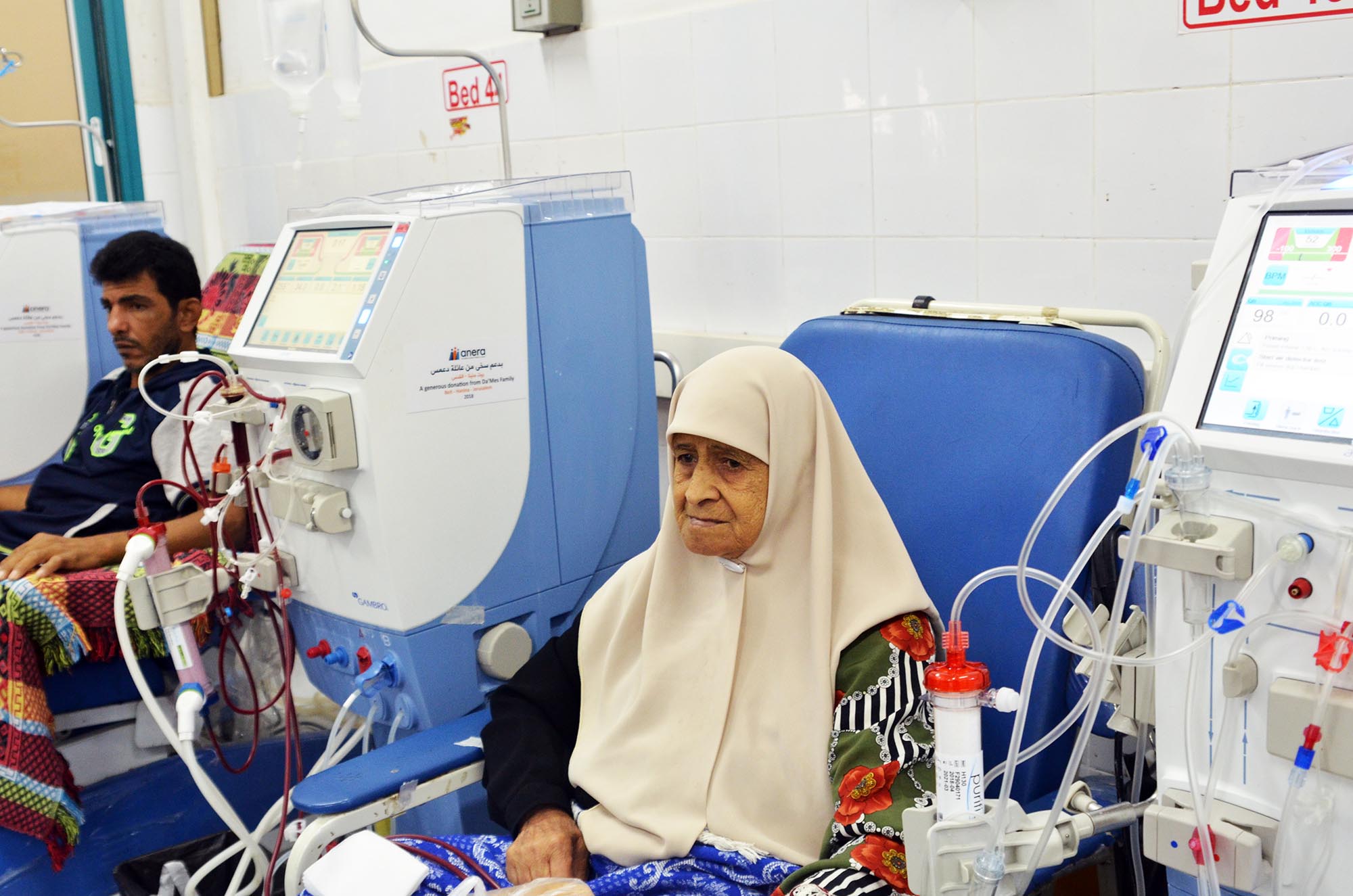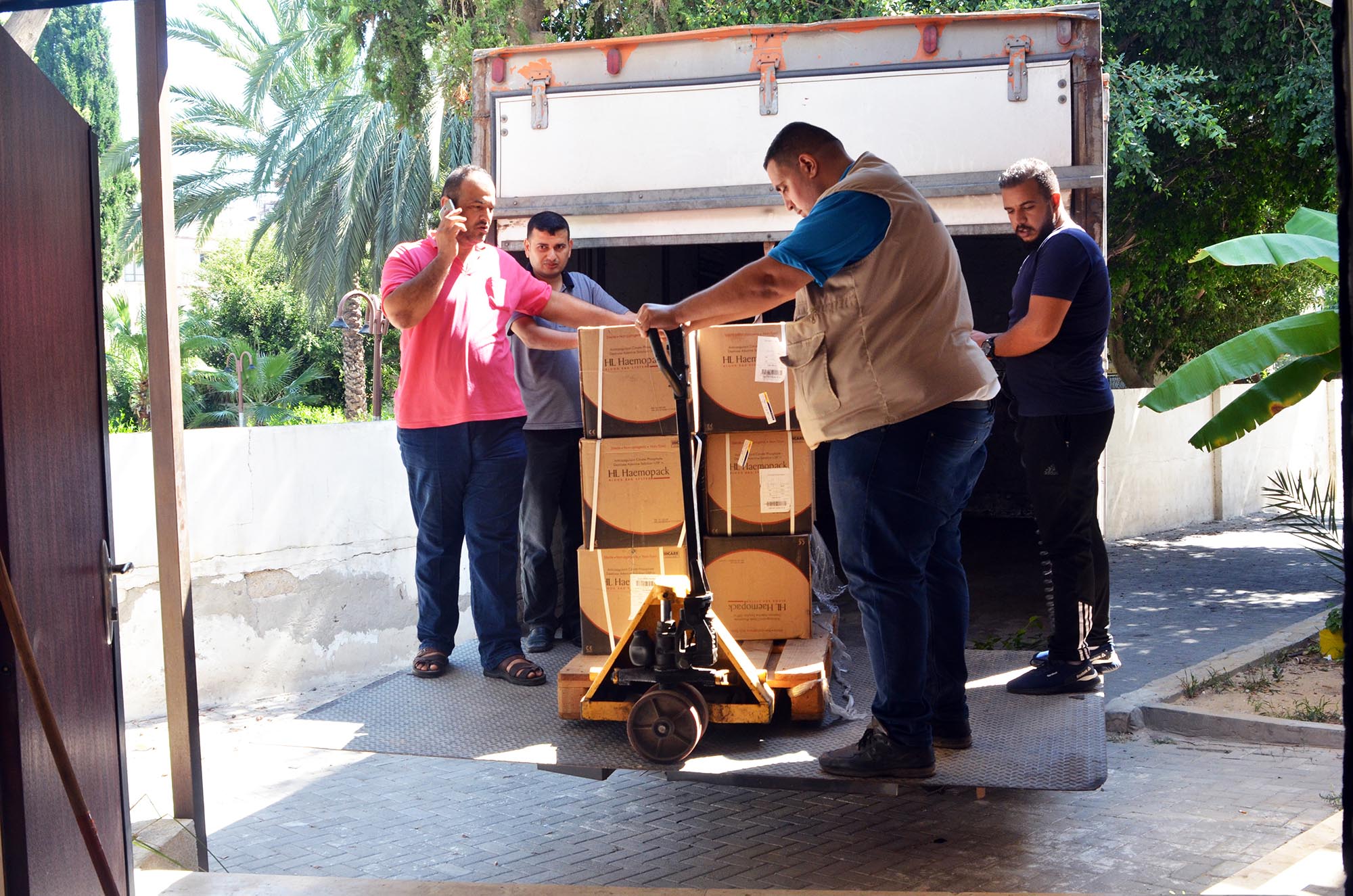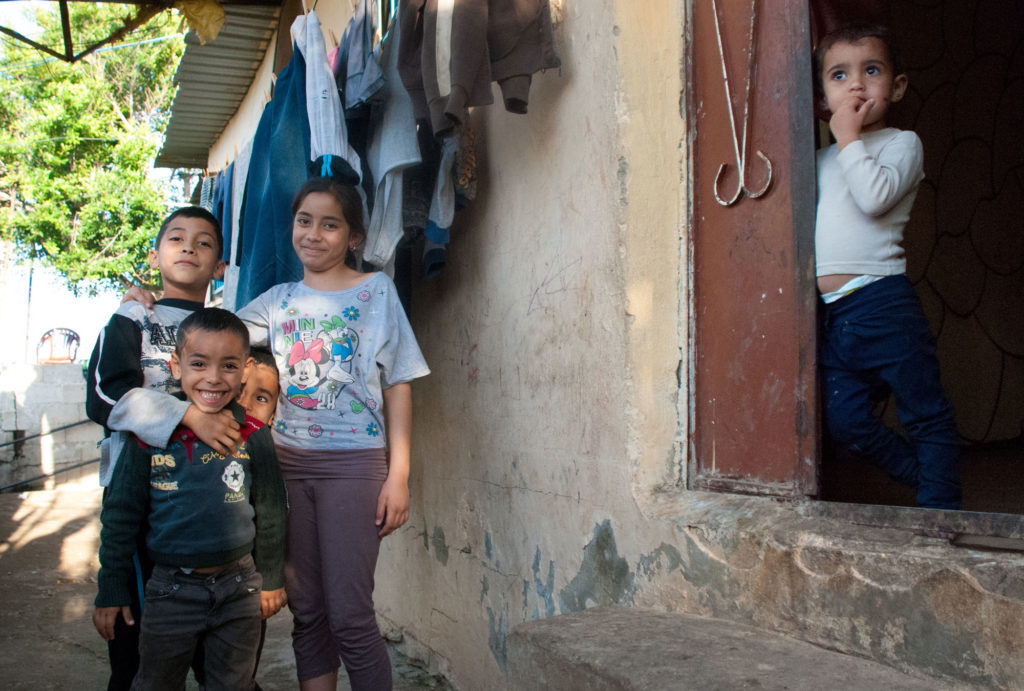Oct, 2018
“We have replaced our old inadequate machines with the new ones. This has reduced wait times for our patients.” - Dr. Al Qishawi, head of the dialysis department.
Dozens of patients were queued last week inside the bustling Al-Shifa Central Hospital in Gaza, waiting for their dialysis treatment. Ten dialysis machines, which Anera recently delivered to the hospital, bring the hospital’s total up to 40 working machines.
“We are grateful for this generous donation from the Da’Mes family,” says Dr. Al Qishawi, head of the dialysis department. “We have replaced our old inadequate machines with the new ones. This has reduced wait times for our patients,” says the doctor.
Al-Shifa hospital hosts 70 percent of the approximately 700 patients in Gaza who need dialysis treatment on a weekly basis. Furthermore, when an emergency happens, the hospital covers 100 percent of the patient’s needs.
“We have had dilapidated, overloaded equipment. The old machines were operating over capacity. We were squeezing the life out of those machines to accommodate the increasing number of patients and the lack of spare parts. If a machine is broken, it takes us several months to fix it − if we’re lucky,” says Dr. Al Qishawi.
Up till now, the hospital has scheduled five shifts of treatments per day. One patient had been trying for some time to reschedule her dialysis appointments for the afternoon shift instead of the midnight shift because she lives near the border, which can be an unsafe at night.
In any given 24 hour period, each existing machine served five people during its 20 hours of operation. The last shift runs from 12 am until 3 am. “This can be very tiring for older patients who sometimes live long distances from the hospital,” Dr. Al Qishawi observes. “With the new dialysis machines, we can move almost all of our patients off the late-night treatment shift.”
The frequent electricity cuts in Gaza can affect the efficiency of the machines. Haja is one of 458 patients who fill the dialysis unit at Al-Shifa twice a week. Her kidney function has deteriorated due to disease and she relies on the treatment at Al-Shifa to survive. “It scared me when the [old] machine stopped functioning in the middle of my session. I had to wait until they fixed and cleaned it and made it functional again,” she said.
“Treatment delays and long wait times can have a marked psychological and social effect on patients,” says Dr. Al Qishawi. Now, with the new machines operating, patients will spend less time waiting for dialysis treatments and have more flexibility to select their preferred treatment times.






